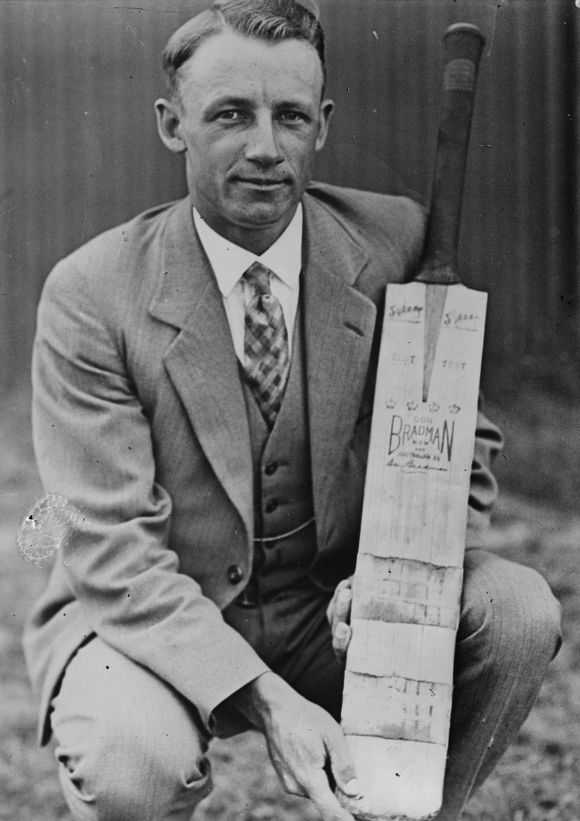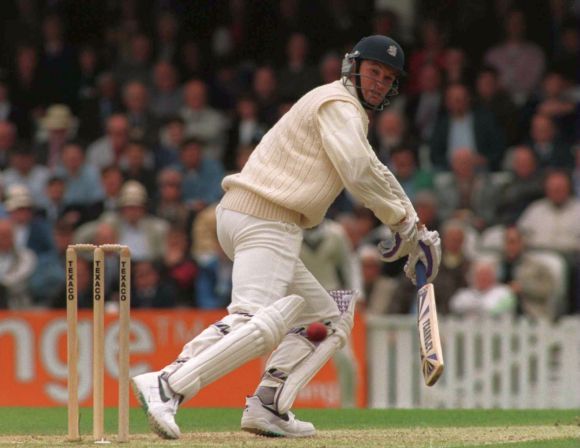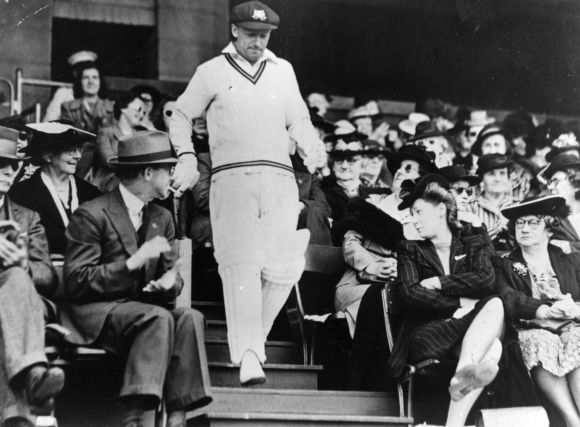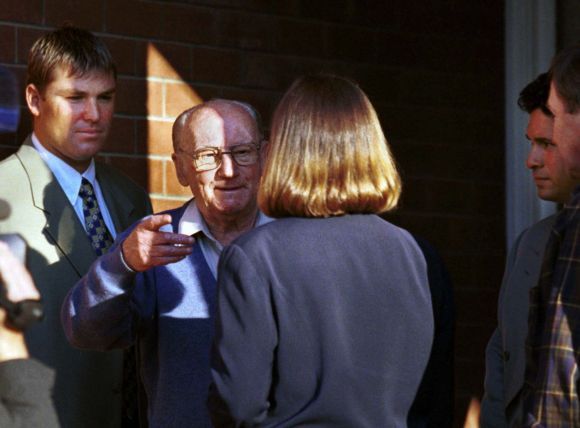
Despite losing four years of playing days due to World War II, Don Bradman still is head and shoulders above the rest. Haresh Pandya pays tribute to the batting legend.
What is common among George Headley, Everton Weekes, Garfield Sobers, Lawrence Rowe, Vivian Richards, Brian Lara, Graeme Pollock, Barry Richards, Doug Walters, Greg Chappell, Zaheer Abbas, Sunil Gavaskar and Sachin Tendulkar?
Well, they were compared with actually the incomparable Don Bradman (born August 27, 1908) at one time or the other during their remarkable careers.
Why, some of them began their careers in such a blaze of glory that they were even tipped to become another Bradman.
Many cricket writers have been so obsessed with comparing an emerging prolific batsman with the Australian that someone like Graeme Hick had been described as another Bradman on the horizon well before he made his England debut.
Hick was an anti-climax of sorts

That was in 1988 when the Zimbabwean scored a plethora of runs in English County Championship.
Comparison with Bradman and his own growing reputation as a high-scoring batsman put such an enormous pressure on the affable Hick that he always seemed to be wilting under the sheer weight of expectations.
As a result, subsequently, Hick was an anti-climax of sorts. The real Hick was hardly or never seen on the game’s big stage. Instead of parading his true genius with a fair degree of consistency, he would show only flashes of his brilliance.
It is at once a tribute to the Australian legend that none of those compared with him or said to have had his potential could actually emulate him.
At times Headley, Weekes, Sobers, Vivian Richards, Pollock, Barry Richards and Walters batted even better than him, but even they could never approach him in greatness in terms of figures and feats.
‘Every ball went exactly where I wanted it to go’

You just cannot judge a batsman by the lofty Bradman standard. It is impossible. So, the reasonable standard fixed to judge a batsman is the more human batting average between 50 and 60 runs per innings, which again goes to show how different the Aussie was from all other batsmen.
Interestingly, for someone who always batted brutally aggressively, once smashing a 22-ball century, Bradman hit only six sixes in his entire Test career – five against England and one versus India. Bradman, who was technically very sound and usually timed and executed his shots with precision and perfection, regarded the record 334 he scored at Leeds in 1930 as “technically flawed” and rated the 254 he made at Lord’s as much better.
“Every ball went exactly where I wanted it to go until the ball that got me out,” he once said.
After all these years, it has become crystal-clear that there cannot simply be another Bradman. Cricket lovers, including professional writers and commentators, tend to look for one, albeit vainly, every now and then.
Only Tendulkar came close to Bradman

The closest anybody came to the Australian was Tendulkar. But he, too, could never emulate some of Bradman’s legendary feats.
Some carping critics keep arguing that Bradman and Tendulkar played in different eras and bring into picture many odd factors when discussing and comparing the two and try to prove that the Indian was greater. But the fact cannot be denied that Bradman is head and shoulders above the rest, not just Tendulkar, at least so far as statistics are concerned.
Bradman lost four crucial years of his career to World War II as did all his reputed contemporaries. It is anybody’s guess what he would have achieved and what his final tally of runs, centuries and averages would have been but for the unfortunate interruption.
He never toured India. It may have deprived the Indian cricket aficionados of seeing the great man in action at home, but if he had toured this country, he would surely have massacred the Indian bowlers and scored massive centuries at will just as he did against Lala Amarnath’s team in Australia in 1947-48. But Weekes, the most explosive of the three Ws (Weekes, Frank Worrell, Clyde Walcott) of the West Indies, did come to India in 1948-49 and scored 779 runs at 111.28 in five Tests.
Even in the 21st century, which has seen the likes of Ricky Ponting, Michael Clarke, Rahul Dravid, Inzamam-ul-Haq, Kumar Sangakkara, Mahela Jayawardene, Jacques Kallis, Alaister Cook and several other batsmen like them scoring thousands of runs and hitting many centuries, Bradman continues to remain unsurpassed and unapproached.











